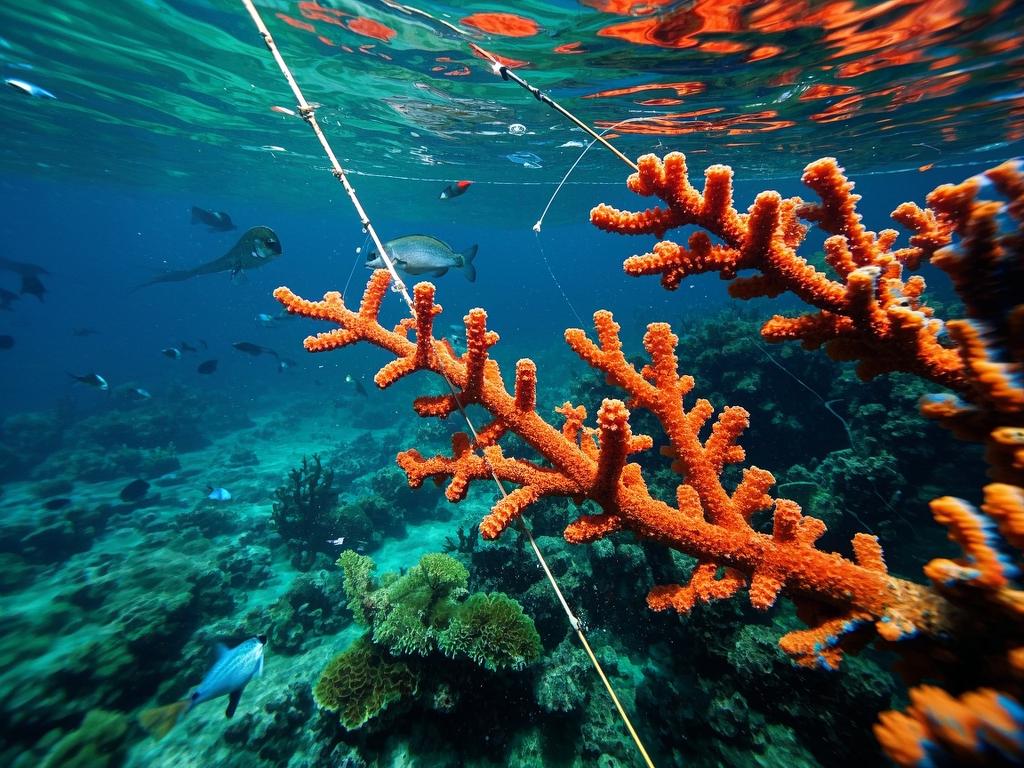
# The Diverse Reefs of the Red Sea: Underwater Wonders in Jeopardy
Hey there, fellow ocean enthusiasts! 🌊 Today, I want to take you on a journey to one of the most fascinating and endangered underwater worlds on our planet - the diverse reefs of the Red Sea. Picture a kaleidoscope of colors, teeming with life in every nook and cranny. It's a realm that's not just a feast for the eyes but a crucial part of our global ecosystem. But here's the catch - these vibrant reefs are in serious jeopardy, and it's time we took notice.
The Red Sea is like a living museum of marine biodiversity. With over 1,100 species of fish, 250 species of coral, and countless other invertebrates, it's a hotbed of unique life forms found nowhere else on Earth. Take, for example, the iconic clownfish that made Nemo famous. These little orange and white wonders call the Red Sea reefs home, along with their symbiotic sea anemones. It's a relationship that's as fascinating as it is vital, with the anemones providing protection and the clownfish helping to keep the anemones clean.
But it's not just the fish that make the Red Sea reefs so special. The coral itself is a marvel of nature. These tiny polyps build massive structures over time, creating the intricate reef formations that we admire. They come in all shapes and sizes, from delicate branching corals to massive brain corals. And each species plays a crucial role in maintaining the balance of the reef ecosystem.
So, what's threatening these underwater wonders? Well, the list is long and disheartening. Climate change is at the top of the list. Rising sea temperatures are causing coral bleaching, a phenomenon where the corals expel the symbiotic algae living in their tissues, turning them white and leaving them vulnerable to death. In some parts of the Red Sea, coral bleaching events have become more frequent and severe in recent years, with some reefs experiencing up to 90% mortality.
Ocean acidification is another major culprit. As the oceans absorb more carbon dioxide from the atmosphere, the water becomes more acidic, making it harder for corals to build their calcium carbonate skeletons. This is like trying to build a house with weakened bricks - it just doesn't work as well. And without healthy coral reefs, the entire ecosystem starts to unravel.
Overfishing is also taking a toll on the Red Sea reefs. Unsustainable fishing practices, such as using dynamite or cyanide to catch fish, not only kill the targeted fish but also damage the reef structure. And when you remove too many fish from the ecosystem, it disrupts the food chain, affecting everything from the smallest plankton to the largest predators.
But it's not all doom and gloom. There are things we can do to protect these precious reefs. One of the most important steps is to reduce our carbon footprint. By using less fossil fuels, conserving energy at home and at work, and supporting renewable energy sources, we can help slow down climate change and give the reefs a fighting chance.
Another crucial aspect is sustainable tourism. The Red Sea is a popular destination for divers and snorkelers, but if tourism isn't managed properly, it can cause just as much damage as overfishing. That's why it's essential to promote responsible tourism practices, such as using eco-friendly tour operators, respecting the reef environment, and supporting local conservation efforts.
We also need to加强海洋保护措施。建立更多的海洋保护区,严格限制捕鱼和其他破坏性活动,可以为珊瑚礁提供一个安全的避风港,让它们有机会恢复和茁壮成长。And by supporting scientific research and conservation projects, we can gain a better understanding of the reef ecosystem and develop more effective strategies for its protection.
So, what can you do? Well, for starters, you can spread the word. Share this article with your friends and family, and encourage them to learn more about the importance of protecting the Red Sea reefs. You can also make small changes in your own life, like reducing your plastic use, conserving water, and supporting sustainable seafood.
Let's not let these underwater wonders disappear forever. The Red Sea reefs are a treasure trove of biodiversity, a source of inspiration, and a vital part of our planet's ecosystem. Together, we can take action to protect them and ensure that future generations get to experience the magic of these diverse and endangered reefs. So, are you ready to be a reef hero? 🌊🦈🐟
#RedSeaReefs #UnderwaterWonders #SaveOurOceans #ClimateAction

